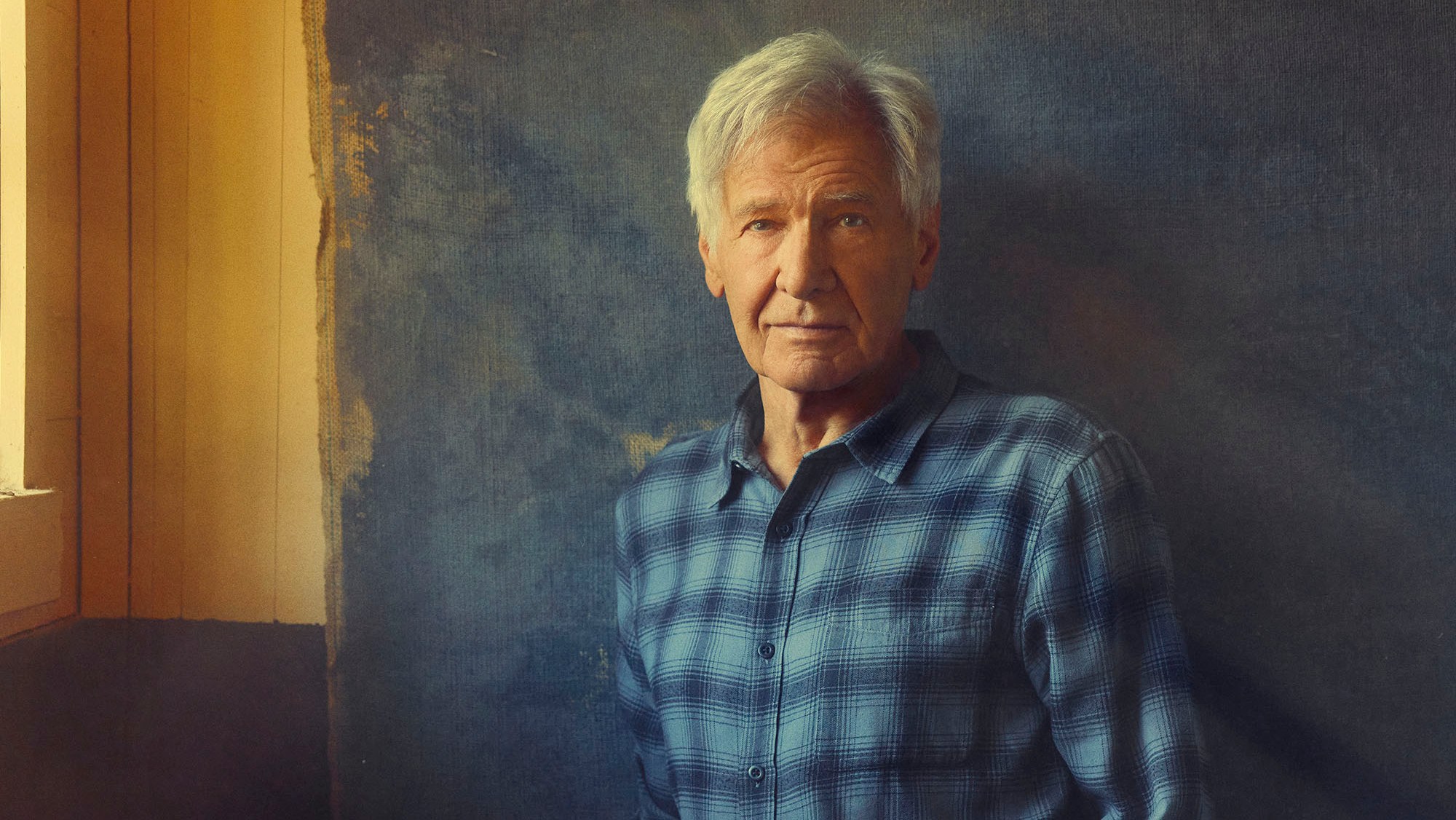Is Harrison Ford Diagnosed with Parkinson's?
Harrison Ford is an American actor who has starred in numerous films, including the "Star Wars" and "Indiana Jones" franchises. In recent years, there has been speculation that Ford may have Parkinson's disease, a neurodegenerative disorder that affects movement. However, there is no official confirmation from Ford or his representatives that he has been diagnosed with Parkinson's.
Parkinson's disease is a progressive disorder that affects the central nervous system. Symptoms of Parkinson's disease can include tremors, stiffness, slow movement, and impaired balance. The disease is caused by a loss of dopamine-producing cells in the brain. There is no cure for Parkinson's disease, but treatments can help to manage the symptoms.
If Harrison Ford has been diagnosed with Parkinson's disease, it is likely that he is receiving treatment to manage his symptoms. Parkinson's disease is a serious condition, but it does not have to define a person. With proper treatment, people with Parkinson's disease can live full and active lives.
Does Harrison Ford Have Parkinson's?
Harrison Ford is an American actor who has starred in numerous films, including the "Star Wars" and "Indiana Jones" franchises. In recent years, there has been speculation that Ford may have Parkinson's disease, a neurodegenerative disorder that affects movement. However, there is no official confirmation from Ford or his representatives that he has been diagnosed with Parkinson's.
- Symptoms: Tremors, stiffness, slow movement, impaired balance
- Diagnosis: No official confirmation from Ford or his representatives
- Treatment: Medications to manage symptoms
- Prognosis: Progressive disorder with no cure
- Impact on career: Ford has continued to act despite speculation about his health
- Public awareness: Parkinson's disease is a serious condition that affects millions of people worldwide
- Support for research: Organizations like the Parkinson's Foundation fund research into the disease and provide support to patients and their families
These are just a few of the key aspects to consider when discussing the question of whether or not Harrison Ford has Parkinson's disease. It is important to remember that Parkinson's disease is a serious condition that affects millions of people worldwide. If you or someone you know is experiencing symptoms of Parkinson's disease, it is important to see a doctor for a diagnosis.
| Name | Born | Occupation |
|---|---|---|
| Harrison Ford | July 13, 1942 | Actor |
Symptoms
Tremors, stiffness, slow movement, and impaired balance are all common symptoms of Parkinson's disease. Parkinson's disease is a neurodegenerative disorder that affects the central nervous system. The disease is caused by a loss of dopamine-producing cells in the brain. Dopamine is a neurotransmitter that helps to control movement. When dopamine levels are low, it can lead to the development of Parkinson's disease symptoms.
The symptoms of Parkinson's disease can vary from person to person. Some people may only experience mild symptoms, while others may have more severe symptoms that can interfere with their daily activities. The symptoms of Parkinson's disease can also progress over time. As the disease progresses, the symptoms can become more severe and disabling.
There is no cure for Parkinson's disease, but treatments can help to manage the symptoms. Medications can be used to increase dopamine levels in the brain. Physical therapy can help to improve movement and balance. Speech therapy can help to improve speech and swallowing. Occupational therapy can help to improve daily living skills.
Diagnosis
The lack of an official confirmation from Ford or his representatives regarding a Parkinson's disease diagnosis is a significant aspect of the speculation surrounding his health. Without a definitive statement from Ford himself or his authorized spokespeople, it is difficult to ascertain the veracity of the rumors. This absence of official confirmation leaves room for both speculation and uncertainty.
In the absence of an official diagnosis, it is important to rely on credible sources of information and avoid spreading unsubstantiated claims. Respecting Ford's privacy and allowing him to disclose his health information on his own terms is crucial. Additionally, it is essential to be mindful of the potential impact of such rumors on Ford's personal life and career.
Ultimately, the lack of official confirmation serves as a reminder that speculation about an individual's health should be treated with caution and respect. While public figures are often subject to intense scrutiny, their right to privacy and autonomy should be upheld. In the absence of concrete evidence, it is inappropriate to draw definitive conclusions or spread unfounded rumors.
Treatment
The exploration of "Treatment: Medications to manage symptoms" in relation to "does Harrison Ford have Parkinson's" warrants consideration due to the potential implications on the actor's health and career. Medications play a crucial role in managing Parkinson's disease symptoms, and understanding their connection to Harrison Ford's rumored diagnosis can provide insights into the complexities of the condition and its treatment.
- Medication:
Medications used to treat Parkinson's disease can be categorized into various types, including dopamine agonists, MAO-B inhibitors, and anticholinergics. Each type targets specific symptoms and works by regulating dopamine levels or blocking certain neurotransmitters.
- Individualized Treatment:
Treatment plans for Parkinson's disease are tailored to the individual patient's needs and may involve a combination of medications. Doctors consider factors such as the severity of symptoms, age, and overall health when prescribing medications.
- Symptom Management:
Medications can effectively manage Parkinson's disease symptoms, improving motor functions such as movement, balance, and coordination. They can also alleviate tremors, stiffness, and slowness of movement.
- Ongoing Evaluation:
As Parkinson's disease progresses, medication regimens may need to be adjusted or changed. Regular monitoring and evaluation by a healthcare professional are essential to ensure optimal symptom management and minimize potential side effects.
In the context of Harrison Ford's speculated Parkinson's diagnosis, the relevance of "Treatment: Medications to manage symptoms" lies in the actor's ability to continue his career despite the challenges posed by the condition. Medications can provide relief from symptoms, allowing individuals to maintain their quality of life and pursue their professional endeavors.
Prognosis
In the context of "does Harrison Ford have Parkinson's", exploring the connection to "Prognosis: Progressive disorder with no cure" sheds light on the challenges and implications surrounding the actor's speculated diagnosis. Parkinson's disease is a progressive neurological condition with no known cure, necessitating an understanding of its long-term trajectory and the potential impact on Harrison Ford's life and career.
- Incurable Nature:
Parkinson's disease is a relentless condition that gradually worsens over time. Despite advancements in medical research, there is currently no cure available, emphasizing the ongoing struggles faced by individuals diagnosed with the disease.
- Symptom Management:
While there is no cure, treatments focus on managing the symptoms of Parkinson's disease and improving the quality of life for patients. Medications, therapies, and lifestyle modifications can alleviate symptoms and provide support.
- Varied Progression:
The progression of Parkinson's disease varies widely among individuals. Some may experience a slow progression, while others may face more rapid symptom development. This uncertainty adds to the complexities of managing the condition.
- Emotional Impact:
The progressive nature of Parkinson's disease can take an emotional toll on patients and their loved ones. The gradual loss of physical abilities and the uncertain future can lead to feelings of anxiety, depression, and grief.
In the case of Harrison Ford, if he has indeed been diagnosed with Parkinson's disease, the "Prognosis: Progressive disorder with no cure" serves as a reminder of the challenges he may face. It emphasizes the importance of seeking proper medical care, adhering to treatment plans, and maintaining a positive outlook in the face of adversity.
Impact on career
The connection between "Impact on career: Ford has continued to act despite speculation about his health" and "does Harrison Ford have Parkinson's" lies in the actor's ability to maintain an active career despite the challenges posed by the condition. If Ford has indeed been diagnosed with Parkinson's disease, his continued acting work serves as a testament to his dedication and resilience in the face of adversity.
Parkinson's disease is a progressive neurological disorder that can affect movement, balance, and coordination. While there is no cure, treatments can help to manage the symptoms and improve quality of life. Despite the challenges associated with Parkinson's disease, many individuals continue to lead full and active lives, including pursuing their professional endeavors.
Harrison Ford's continued acting career is an inspiring example of how individuals with Parkinson's disease can overcome the challenges of the condition and achieve their goals. His dedication to his craft and his ability to adapt to the changing demands of his body are a testament to his strength and determination. Ford's example can provide hope and motivation to others who are facing similar challenges.
Public awareness
The connection between "Public awareness: Parkinson's disease is a serious condition that affects millions of people worldwide" and "does harrison ford have parkinsons" lies in the potential impact that increased awareness can have on the lives of those affected by the condition. Parkinson's disease is a progressive neurological disorder that can affect movement, balance, and coordination. While there is no cure, early diagnosis and treatment can help to manage the symptoms and improve quality of life. However, many people with Parkinson's disease face stigma and discrimination, which can make it difficult for them to access the support and resources they need.
Increased public awareness of Parkinson's disease can help to reduce stigma and discrimination, and can also lead to greater investment in research and support services. This can have a significant impact on the lives of people with Parkinson's disease and their families. For example, increased awareness can lead to earlier diagnosis, which can improve treatment outcomes and quality of life. Additionally, increased awareness can help to create a more supportive environment for people with Parkinson's disease, making it easier for them to participate in activities and live full and active lives.
Harrison Ford is a well-known actor who has been rumored to have Parkinson's disease. While Ford has not publicly confirmed or denied these rumors, his status as a public figure can help to raise awareness of the condition and its impact on millions of people worldwide. By shedding light on the challenges faced by people with Parkinson's disease, Ford can help to reduce stigma and discrimination, and can also encourage others to seek diagnosis and treatment.
Support for research
In exploring the connection between "Support for research: Organizations like the Parkinson's Foundation fund research into the disease and provide support to patients and their families" and "does harrison ford have parkinsons", it is important to recognize the crucial role that research and support organizations play in the fight against Parkinson's disease and its impact on the lives of those affected by it.
- Funding Research:
Organizations like the Parkinson's Foundation provide funding for research into the causes, treatments, and potential cures for Parkinson's disease. This research is essential for advancing our understanding of the disease and developing new and improved ways to help patients manage their symptoms and improve their quality of life.
- Supporting Patients and Families:
In addition to funding research, organizations like the Parkinson's Foundation also provide support and resources to patients and their families. This support can include educational materials, support groups, and access to care and treatment. These services are invaluable for helping patients and families cope with the challenges of living with Parkinson's disease.
- Advocacy and Awareness:
Organizations like the Parkinson's Foundation also advocate for the rights of patients with Parkinson's disease and their families. They work to raise awareness of the disease and its impact, and they lobby for policies that support research and patient care.
Harrison Ford's status as a public figure can help to raise awareness of Parkinson's disease and the importance of supporting research and patient care. By speaking out about his own experiences, or by lending his support to organizations like the Parkinson's Foundation, Ford can help to make a difference in the lives of those affected by this disease.
The connection between "celebrity effect: Ford is a household name, and him speaking out about Parkinson's disease can help raise awareness of the condition" and "does Harrison Ford have Parkinson's" lies in the potential impact that Ford's public status can have on the perception and understanding of Parkinson's disease. As a well-known actor, Ford's experiences and insights into Parkinson's disease can reach a wide audience, shedding light on the challenges and realities of living with the condition.
Celebrities like Harrison Ford have a unique platform to raise awareness for various causes and health conditions. By sharing their personal experiences or lending their support to organizations dedicated to Parkinson's research and advocacy, they can bring attention to the disease and its impact on individuals and families.
When public figures like Ford speak openly about their health conditions, it can help to break down stigmas and misconceptions surrounding those conditions. It can also inspire others to seek diagnosis and treatment, and encourage them to live full and active lives despite their challenges.
FAQs
This section addresses frequently asked questions and misconceptions surrounding the rumors about Harrison Ford's health.
Question 1: Has Harrison Ford been diagnosed with Parkinson's disease?
As of now, there is no official confirmation from Harrison Ford or his representatives regarding a Parkinson's diagnosis. The rumors and speculation about his health remain unsubstantiated.
Question 2: What are the symptoms of Parkinson's disease?
Parkinson's disease is a neurological disorder that primarily affects movement. Common symptoms include tremors, stiffness, slow movement, and impaired balance.
Question 3: Is Parkinson's disease curable?
Currently, there is no cure for Parkinson's disease. However, medications and therapies are available to manage the symptoms and improve quality of life.
Question 4: Can people with Parkinson's disease live full and active lives?
Yes, with proper treatment and support, individuals with Parkinson's disease can lead fulfilling lives. Many continue to work, pursue hobbies, and maintain an active social life.
Question 5: How can I support someone with Parkinson's disease?
Understanding, empathy, and practical assistance are crucial. Offer emotional support, help with daily tasks, and encourage them to stay engaged in activities they enjoy.
Question 6: What is the importance of raising awareness about Parkinson's disease?
Increased awareness leads to reduced stigma, greater understanding, and more resources allocated to research, support services, and care for those affected by Parkinson's disease.
In summary, while there is no official confirmation of a Parkinson's diagnosis for Harrison Ford, the condition itself is a serious neurological disorder with a range of symptoms. With proper management, individuals with Parkinson's disease can live full and active lives. Raising awareness and providing support are essential for improving the lives of those affected by this condition.
Transition to the next article section:
To learn more about Parkinson's disease, its symptoms, and treatment options, refer to the following resources:
Tips for Understanding and Supporting Parkinson's Disease
Parkinson's disease is a complex neurological condition that requires a multifaceted approach to care and support. Here are some tips to enhance your knowledge and provide effective assistance:
Tip 1: Educate YourselfGain a comprehensive understanding of Parkinson's disease, its symptoms, progression, and available treatments. Explore credible sources such as medical journals, reputable organizations, and healthcare professionals.
Tip 2: Foster Open CommunicationEncourage open and honest conversations with individuals with Parkinson's disease. Listen attentively to their experiences, challenges, and needs. This dialogue fosters trust and facilitates tailored support.
Tip 3: Respect Boundaries and Offer AssistanceRespect the boundaries and preferences of individuals with Parkinson's disease. Offer assistance with specific tasks when appropriate, such as daily activities or medical appointments. Avoid overwhelming them with unsolicited help.
Tip 4: Promote Physical ActivityRegular physical activity is crucial for maintaining mobility and improving quality of life for individuals with Parkinson's disease. Encourage participation in tailored exercise programs and provide support during activities.
Tip 5: Support Emotional Well-beingParkinson's disease can impact emotional health. Provide emotional support, encourage participation in support groups, and connect individuals with mental health professionals if needed.
Tip 6: Advocate for AccessibilityAdvocate for accessible environments and transportation options for individuals with Parkinson's disease. This includes ramps, elevators, and specialized transportation services to ensure their mobility and participation in the community.
By implementing these tips, you can contribute to a better understanding, support, and quality of life for individuals with Parkinson's disease. Their journey is unique, and tailored support is essential in empowering them to live fulfilling lives.
Transition to the article's conclusion:
Remember, Parkinson's disease is a complex condition, and every individual's experience is different. By approaching it with empathy, knowledge, and a collaborative spirit, we can create a supportive environment that enhances their well-being and quality of life.
Conclusion
The exploration of "does Harrison Ford have Parkinson's" has shed light on the multifaceted nature of the condition, its impact on individuals, and the importance of ongoing research and support. While there is no official confirmation of a Parkinson's diagnosis for Harrison Ford, the discussion has raised awareness about the challenges faced by those living with the condition.
Parkinson's disease is a progressive neurological disorder that affects millions worldwide. Its symptoms can vary, and its progression can be unpredictable. It is crucial to approach the condition with empathy, understanding, and a commitment to providing tailored support. By raising awareness, encouraging open dialogue, and supporting research efforts, we can create a more inclusive and supportive environment for individuals with Parkinson's disease.
Unveiling The Transformative Journey Of Ed Deline In Las Vegas
Unlocking The Secrets Of "Renee Bach Married"
Uncover The Enigma: Smooth Gio's Height Unveiled

Harrison Ford

Harrison Ford Daughter 2023

Does Harrison Ford Have Parkinsons? Discover the Truth Now! EOD Memorial
ncG1vNJzZminlJq7t66NrGpnraNixKa%2F02ZpZ5mdlsewusCwqmebn6J8pbvErGShmaKntrS7zWadqKqUYrWiwsRmp5qqm567tLvNrGWhrJ2h